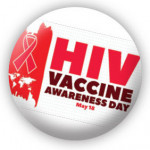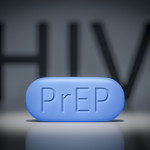
As I drove down Ninth Avenue through the grey cold of January, unwanted thoughts kept washing over me.
It was the 3rd day of 1988, and in the newspapers there had appeared numerous stories of people who had been infected but asymptomatic for five years or more.
In eight years I had not had anything more serious than a brief bout with the flu.
I?d also had an odd white spot on my tongue sometime back around 1980 that my doctor thought was a yeast infection that I?d picked up from a girlfriend (he actually gave me Monistat tablets to suck on!)
Nonetheless, the passage of time was no longer the assurance that it had been. Even though the last time I?d used IV drugs was in late 1979 and into the early days of 1980, and I thought that it was unlikely that I?d been infected, I had taken the test because we wanted to have children. Just to be sure. I pulled over at a parking meter and waited awhile, and at five minutes to nine, I pushed two quarters in the coin slot and walked into the Health Department building.
A young woman standing near in an open door looked out me. I gave her my patient number and she told me to have a seat. I watched her pull a manila folder from a metal cabinet.
?There?s no one in yet, you?ll have to wait,? she said.
It was hard to imagine a more depressing place. The walls were covered in dirty celadon green tiles, and spikes of old straw stuffing poked through the row of cracked and faded orange vinyl seats that lined the hallway. The smell of industrial floor cleaner pinched the back of my throat. After fifteen minutes watching civil service employees and tired volunteers drift into the nearby rooms, I looked into another office where two women spoke quietly while looking at me. It could not have been more obvious, and although I could not understand it at that moment, neither my wife nor I would ever have another innocent day without worry of death or pain or loss.
I left the clinic and drove to court in Brooklyn, where I?d been assigned to represent a defendant who had AIDS. I can still remember his face - gaunt and grey as a ghost. The court officers refused to touch him without wearing rubber gloves. His name was Juan Figueroa.
Figueroa was dying, and I had asked the judge to dismiss the case in the interest of justice so that Figueroa could die a free man. The judge ducked the issue, adjourning the case every thirty days for a decision that never came. I drafted a motion that I was going to file in the Appellate Division, hoping to force the judge to make a decision, but I was too late. Figueroa died alone and all but forgotten at the AIDS ward of the Rikers Island prison hospital. I never forgot Juan, and I doubt that I ever will. You can be sure that I will never forget the name of that judge, either.
After I left the courtroom that day the enormity of it all swept over me, and I retreated to a phone booth and called my wife, sobbing in a corner of a courthouse in Brooklyn. A few days later, my doctor tested me for Hep C, and I discovered that I was coinfected with that virus as well.
So much time has passed. So many years. I have now been living with HIV and Hep C in my body for 28 years or so, and despite all that we have lost I have been incredibly fortunate. I am still here, still ridiculously healthy and I have made a lot of great friends whom I never would have met were it not for HIV. I am a very lucky man.
It?s been a long time since I went into the New Year feeling as joyful and optimistic as I feel these days, despite all of the challenges that we all face. I wish each and every one of us - HIV positive or not - a very healthy and happy new year.
And Juan as well, wherever he is.








18 Comments
18 Comments